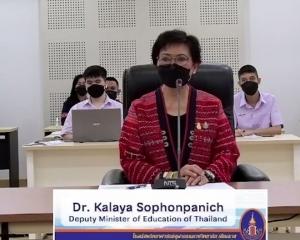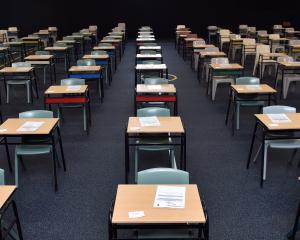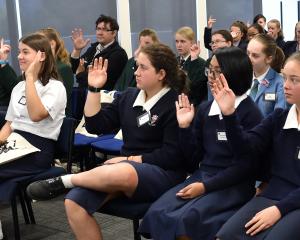During a Radio New Zealand interview, Mrs Tolley urged parents to tell schools what they think about the new mid-year school reports which use the national standards in reading, writing and maths.
Schools must report twice a year to parents about their children's progress and achievement against the standards.
Mrs Tolley said schools were still learning how to work with the standards and feedback from parents would be useful.
Parents should not be alarmed if their child did not meet a standard, because some were set at "higher than normal age-group achievement".
Parents should bear in mind that schools were still learning to work with the national standards and their first reports using them may not be 100% correct, she said.
Otago Primary Principals Association president Jenny Clarke was upset at the statements.
"If Mrs Tolley knows that the standard is set higher than normal age-group achievement, they may actually be unrealistically aspirational, just as many people have been trying to say from the outset of this initiative, running the serious risk of de-motivating children.
"It seems not only premature for Mrs Tolley to be offering comment on how effective schools are at implementing the standards, it would be encouraging if she demonstrated a higher level of faith in the profession."
NZEI president Frances Nelson believed Mrs Tolley's statements were unfair to parents and children.
It was also unfair on teachers and principals who were under pressure to implement a system they were struggling to understand and in which they had no confidence.
"We've got parents of children who are reading at stanine 7 - which is in the top 23% of [pupils] - being told their child is below the national standard. How can the minister tell them not to be alarmed?
"Not only are parents being let down, but so are children. Children aren't going to understand that their school is struggling to rush in an untried and untested policy.
"They will just see that they are failing."
The Government needed to do some plain English reporting of its own and engage with principals, teachers and school communities to restore confidence and achieve positive changes for teaching and learning, Ms Nelson said.











